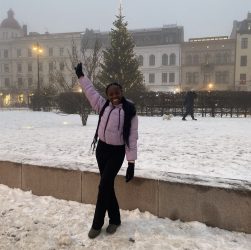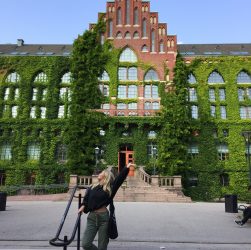Chawanangwa Mhango M. Phil in Sustainable Development Semester Exchange in the First Semester, 2024 at Lund University Pre-departure: Expressing …


Chawanangwa Mhango M. Phil in Sustainable Development Semester Exchange in the First Semester, 2024 at Lund University Pre-departure: Expressing …

Hej! I’m Jessica. I have just returned from a semester-exchange at Lund University, Sweden, where I completed a free-standing course …

Pre-Departure The pre-departure period started roughly at the start of March 2019, after my application for the exchange had been …